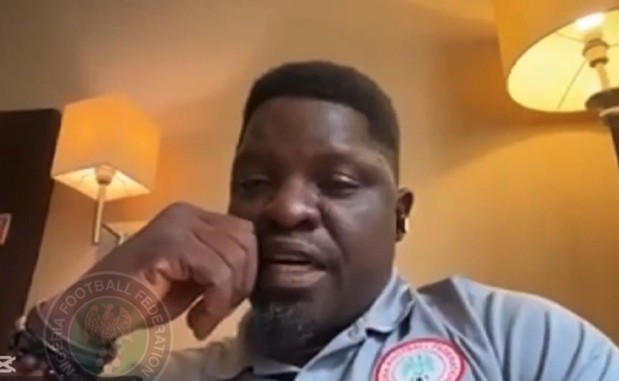
Research carried out in 2015 by Dr. David Blakelock of Teeside University suggested that 55% of young players were showing signs of psychological distress after being let go from a football academy.
After many years of mental health issues following his rejection by a Premier League football club’s academy, a young, 16 year- old took his life in 2013.
According to the coroner present at the inquest, the English football youth development system is rife with potential dangers for these young players.
These professional clubs are incredibly ambitious and commercialized. It is unlike anything the layman imagines it to be – fun perhaps, like playing for Thunderbolt casino bonuses. Unfortunately, it is considerably more brutal than one would imagine. They take on thousands of boys from the age of 8 and put them into very rigorous, four times a week training. This system was first authorized by the Football Association’s “Charter for Quality” some 20 years ago. Many of these boys are then let go each year, as the clubs focus their attention on those few boys who they think may stand a change, however small, of becoming a professional player and will then become a valuable financial asset to the club.
There are approximately 12,000 boys within this system but the openings for first team opportunities have lessened each year since 1997. The majority of Premier League clubs bypass their own players and graduates when a transfer window comes up and choose to pay millions on bringing in star players from overseas.
Real Also: Premier League Return Date Suspended Due To Coronavirus Pandemic
Football clubs are not supporting their rejected players
With regard to the young boy who took his own life, he was reported to have been a “happy and bright, fun child who was a talented footballer”. He was talent spotted when playing football at a junior level. He was accepted into a lover division club and then, later brought into the Premier League club at 13 years old and remained there until 16. At this time decisions are made as to who will be chosen to go onto the scholarship program, extending the relationship with the club for a further two years, and who will not. Those boys not accepted to the scholarship program are released.
This can be a crushing blow to a young boy, seeing his dreams disappear in a flash. The coroner in the case said “It is the one, single most important factor that led to the events which ended in his suicide.” She went on to say that “it’ s very difficult to build up hopes of a young man and for them to be dashed at a critical age……From the evidence there is not much support for being let go and this seems to be cruel”. The football club did not send any representative to appear at the inquest and this was seen as a demonstration of this problem.
So many young boys are being set up for failure
The Premier League and Football League argue that their system and coaching facilities are extremely professional. They stress that these boys receive a wide range of welfare services and courses focusing on life skills, and these include emotional health and wellbeing. The EFL argues that its education department in charge of the welfare programs, keeps in touch and follows those boys released for a further four years and stress the positive results.
According to the Premier League a high number of 18- year-olds are given professional contracts, approximately 65% last year. However, according to the Professional Footballers’ Association, of the boys accepted into the scholarship program when they are 16 only one out of six are still playing professional football by the age of 21.
The pressures of being involved in the cut-throat business of youth football.
The boys who have been in the system for years, since early childhood, are likely to receive less sophisticated and well- rounded support. These families, who have been actively involved in the process for years, travelling for training weekly and attending matches at the weekends, are left bereft when their boys are released at 16. They are likely to drop back into obscurity and poorly funded local situations after having been involved in plush youth development complexes.
There doesn’t seems to be any serious assessment carried out to see the effects of the academy system on the mental and emotional state of these boys. There have been some academic studies done. As stated earlier, in the Teeside University study of 2015, it was found that there are real problems and signs of “clinical levels of psychological distress” some 2l days after these boy’s have been let go.
A questionnaire/interviews was prepared by Chris Platt in 2012 as part of a doctorate for Chester University. It included 303 17-18- year-olds in 21 clubs’ academy. Only four of these boys have professional contracts – a 99% dropout rate. Platt feels that one of the biggest problems was that education was not taken seriously by the boys who felt they were set for a career in football.
And in spite of the various welfare programs there was not enough support given to the boys on release. These clubs are enormously rich and have amazing resources, which these boys have enjoyed, sometimes for many years. This has impacted them in all kinds of ways, emotionally, socially and psychologically. It is difficult for many of these boys to adjust and to cope with the “normal” world when they are released.
According to Geoff Scott of the welfare organization for former footballers, says there is a very high casualty rate for boys rejected by these training academies. After being released many will likely never hear from these clubs again, places they may have been connected to for years. The stark reality of it is really quite painful.
It could be that those from more prosperous middleclass families do better. They are often encouraged to continue throughout with their education and may have more options open to them upon release. Those from less advantaged homes are more likely to find things more of a struggle when returning to disadvantaged neighborhoods and may fall into crime and other negative situations.
Chris Green wrote the book Every Boy’s Dream in 2009 which looks at the situation of so many of these boys who are accepted into these academies so young. He stresses that the FA should be looking at the effects on the emotional and psychological wellbeing of those in the youth development system. “These children, very young, are not being given the time to play and enjoy their sport, before being taken into a system where they are seen as commodities, then discarded with too little concern about the damage it does”.
This is the stark reality, and it is often a very cruel and painful one.
How To Migrate To Canada Without IELTS – A must read for anyone looking for a better life abroad”…. Copyright © 2020 Completesports.com All rights reserved. The information contained in Completesports.com may not be published, broadcast, rewritten, or redistributed without the prior written authority of Completesports.com.
You may be interested

2024 CHANQ: History Not Kind To Us Against Ghana –Ogunmodede
Webby - December 24, 2024Home-based Super Eagles coach Daniel Ogunmodede says history has not been good to Nigeria when they face rivals Ghana.The home-based…

Ex-Chelsea Star Oscar Returns To Boyhood Club Sao Paulo
Webby - December 24, 2024Former Chelsea midfielder Oscar is returning to his Brazilian boyhood club Sao Paulo after 14 years, which included a long…

‘I’m Incredibly Proud’– Arokodare Talks Up Genk’s Unbeaten Home Streak
Webby - December 23, 2024Tolu Arokodare is full of excitement followingGenk’s historic victory over Anderlecht, reports Completesports.com.Sunday’s win at the Cegeka Arena was the…


















![American Pastor, David Wilson Seen Eating The Box Of Woman Who Isn’t His Wife [Video]](https://onlinenigeria.com/wp-content/uploads/2019/10/american-pastor-david-wilson-seen-eating-the-box-of-woman-who-isnt-his-wife-video-150x150.jpg)









